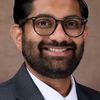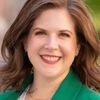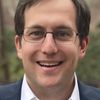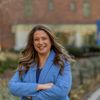Kyle Athayde
Kyle Athayde (Revive East Side Party) ran for election to the New York City Council to represent District 4. He lost in the general election on November 4, 2025.
Athayde completed Ballotpedia's Candidate Connection survey in 2025. Click here to read the survey answers.
Biography
Kyle Athayde was born in New York, New York. He earned a high school diploma from the Phillips Exeter Academy. He earned a bachelor's degree from City University of New York, Hunter College in 2013. His career experience includes working as an operations director, working at the Lincoln Center for the Performing Arts, and working at NYC Health + Hospitals/South Brooklyn Health.[1]
Athayde has been affiliated with the following organizations:[1]
- Manhattan Community Board 6
- Friends of Dag Hammarskjold Plaza
- Turtle Bay Association
- Church of the Holy Family
- iMentor
- Best Buddies NYC
- Generation Citizen
Elections
2025
See also: City elections in New York, New York (2025)
General election
General election for New York City Council District 4
Virginia Maloney defeated Debra Schwartzben and Kyle Athayde in the general election for New York City Council District 4 on November 4, 2025.
Candidate | % | Votes | ||
| ✔ |  | Virginia Maloney (D) | 68.9 | 43,247 |
| Debra Schwartzben (R) | 26.9 | 16,868 | ||
 | Kyle Athayde (Revive East Side Party)  | 4.1 | 2,573 | |
| Other/Write-in votes | 0.2 | 125 | ||
| Total votes: 62,813 | ||||
 = candidate completed the Ballotpedia Candidate Connection survey. = candidate completed the Ballotpedia Candidate Connection survey. | ||||
| If you are a candidate and would like to tell readers and voters more about why they should vote for you, complete the Ballotpedia Candidate Connection Survey. | ||||
Do you want a spreadsheet of this type of data? Contact our sales team. | ||||
Withdrawn or disqualified candidates
- Vanessa Aronson (Working Families Party)
Democratic primary election
Democratic Primary for New York City Council District 4
The following candidates advanced in the ranked-choice voting election: Virginia Maloney in round 5 . The results of Round are displayed below. To see the results of other rounds, use the dropdown menu above to select a round and the table will update.
| Total votes: 29,606 |
||||
 = candidate completed the Ballotpedia Candidate Connection survey. = candidate completed the Ballotpedia Candidate Connection survey. | ||||
Republican primary election
Republican Primary for New York City Council District 4
The following candidates advanced in the ranked-choice voting election: Debra Schwartzben in round 1 .
 = candidate completed the Ballotpedia Candidate Connection survey. = candidate completed the Ballotpedia Candidate Connection survey. | ||||
Working Families Party primary election
Working Families Primary for New York City Council District 4
The following candidates advanced in the ranked-choice voting election: Vanessa Aronson in round 1 .
 = candidate completed the Ballotpedia Candidate Connection survey. = candidate completed the Ballotpedia Candidate Connection survey. | ||||
Endorsements
Ballotpedia did not identify endorsements for Athayde in this election.
Campaign themes
2025
Ballotpedia survey responses
See also: Ballotpedia's Candidate Connection
Kyle Athayde completed Ballotpedia's Candidate Connection survey in 2025. The survey questions appear in bold and are followed by Athayde's responses.
| Collapse all
I was born at Metropolitan Hospital, went to daycare at the Vanderbilt YMCA, studied at P.S. 183 and Simon Baruch Middle School, and graduated from CUNY’s Hunter College.
This community raised me. But it wasn’t always easy. When my family was priced out of our apartment, we were homeless. We lived in a pastoral center, in the homes of church members, even at the YMCA. And yet, through inclusionary housing policies, we eventually found a permanent home here.
That experience shaped me. It showed me the power of neighbors looking out for one another, and the importance of leadership that ensures dignity, opportunity, and stability for every family.
Today, East Siders face new challenges: rising rents, depleted services, and a declining quality of life. With more than 14 years of experience in government and the public sector, and as the former Chair of Community Board 6, I know how to deliver results.
I’m running to Revive the East Side, combining my lived experience, professional expertise, and community leadership to fight for the kind of city we all believe in: a city where every family can thrive.
To learn more about my vision for District 4, visit www.kyle2025.com. Together, let’s build the future our community deserves.- GET THE POLITICS OUT OF POLITICS!
For too long, politics in New York has been defined by partisanship, by gridlock, and by leaders who answer to special interests before they answer to their constituents. I’m running to change that.
I’m not bound by party bosses or big money. I’m accountable only to the communities I serve. Independence means I can speak truth when others stay silent. It means I can bring people together when others drive us apart.
This campaign is about reminding all of us that the government belongs to the people, not the parties, and that real change only happens when we refuse to accept politics as usual. - COMMUNITY EXPERIENCE I know this community because it made me who I am. I grew up here, went to public schools here, and when my family faced homelessness, it was the East Side that lifted us up. I’ve worked with every level of government, building partnerships, solving problems, and navigating complex systems to deliver results. As the Chair of Manhattan Community Board 6, I led the fight to stop the Soloviev Casino, kept our district safe during the pandemic, and oversaw the largest expansion of green space in a generation. I know what it means to fight through adversity, and I know how to make government work for people. That’s the experience I will bring to City Hall.
- The challenges we face in District 4 are real: we are all struggling with affordability and quality of life. But I believe these challenges are not insurmountable. What they demand is innovation: the courage to think differently, to look beyond the status quo, and to harness the creativity and energy that has always defined this city. Progress doesn’t come by standing still; it comes when communities come together, when neighbors find common ground, and when leaders have the vision to see what’s possible. With the right leadership, the East Side can be more than a place we live – it can be a model of progress, opportunity, and shared purpose once again.
I believe leadership is not about serving the powerful – it is about lifting up those who feel unseen and unheard. I care deeply about the kind of policies that shape our daily lives in simple but profound ways – whether a child feels opportunity, whether a worker feels respect, whether a senior feels cared for.
The City Council is where democracy is tested each day, where the voices of everyday people can still be heard, where a tenant, a worker, or a small business owner can come and see their government respond.
Mayor Fiorello LaGuardia showed that government could be both tough and compassionate, and that it could cut through politics to deliver for all New Yorkers.
Senator Robert F. Kennedy (NOT the current HHS Secretary!) inspired me with his belief that each of us has a duty to stand against injustice, and to measure our lives not by what we take, but by what we give.
And today, I look to Malala Yousafzai, a contemporary whose courage in the face of violence reminds us that one voice, even a young voice, can move the conscience of the world.
An elected official must be willing to listen, to walk with those who feel unseen, and to place the public good above personal gain. In the end, what matters most is not ambition or title, but whether you have stood with those who had no one else to stand with them.
A Council Member must be a bridge, carrying the problems of the community into City Hall and returning with solutions. And above all, the responsibility is to remain faithful to the daily lives of New Yorkers: their safety, their dignity, and their hope.
But more importantly, as a human being, I would hope to be remembered for standing with those who were struggling, giving voice to those who felt forgotten, and never losing sight of the dignity of every person.
I remember the confusion of that day, the fear in the voices of adults, and the images that seemed almost too terrible to be real.
My first job was as an afterschool counselor for children in kindergarten through fifth grade at a public school on the Upper West Side. I spent a year in that role, and can attest that there is no better preparation for public life than guiding a room full of spirited children!
What moves me most is the resilience of those families, and the truth that even in the darkest of times, compassion and solidarity can carry us forward. The Grapes of Wrath tells us that the real measure of a society is not in the wealth of the few, but in whether the many are able to live with dignity.
Keating believed in the power of young people, in their imagination, in their courage to see the world not as it is, but as it could be. He taught that words and ideas can change the world, that each of us has a voice, and a duty to use it.
But out of that hardship came lessons I still carry with me. I learned that resilience is born of struggle, that compassion grows out of suffering, and that dignity must never be taken for granted. I learned that the measure of a society is how it treats those who live in the shadows of poverty and experience inequality: children without homes, families without means, neighbors who feel forgotten.
Community Boards are where the daily struggles of New Yorkers are first heard: the tenant facing eviction, the parent fighting for a playground, the small business owner burdened by red tape. They are the foundation of local democracy, and the people who serve on them carry the voice of their neighborhoods.
But, experience alone is not enough. It must be joined with independence, with compassion, and with the courage to act on behalf of those who too often go unheard. Experience in government is valuable because it can shorten the distance between a neighbor’s struggle and a solution. And at its best, it gives a council member the tools not only to understand the machinery of government, but to bend it toward justice.
But skill alone is not enough. What also matters is lived experience in the issues most important to us – leaders who understand hardship not as an abstraction, but as life itself, who know what it means to struggle for a home, for safety, for dignity. And with that, there must also be professional expertise, the ability to navigate government, to build coalitions, to shape strategic initiatives, and to move from promises to results.
Beyond its technical powers, the Council is also unique because its work is immediate and personal. It is the forum where communities bring their concerns, where local issues meet the machinery of government. It is important not only because of its legal authority, but because it is the place where government is most directly tested – where the promises of democracy are either made real in people’s daily lives, or left unmet.
New York Immigration Coalition Action
These voices are asking us to rise to the occasion, to bring fresh ideas and bold action, and to renew their faith in what government can and must be.
My programs received national recognition from the Harvard Kennedy School as among the Top Government Innovations in the country, and led to the creation of similar programs in numerous other states. But, most importantly, we stood with people at a moment when they needed someone to stand with them. Leadership is not about comfort, but about conscience. And I believe that government, at its best, is not a weapon to exclude, but a bridge to bring people in.
Note: Ballotpedia reserves the right to edit Candidate Connection survey responses. Any edits made by Ballotpedia will be clearly marked with [brackets] for the public. If the candidate disagrees with an edit, he or she may request the full removal of the survey response from Ballotpedia.org. Ballotpedia does not edit or correct typographical errors unless the candidate's campaign requests it.
See also
2025 Elections
External links
Footnotes
| |||||||||













